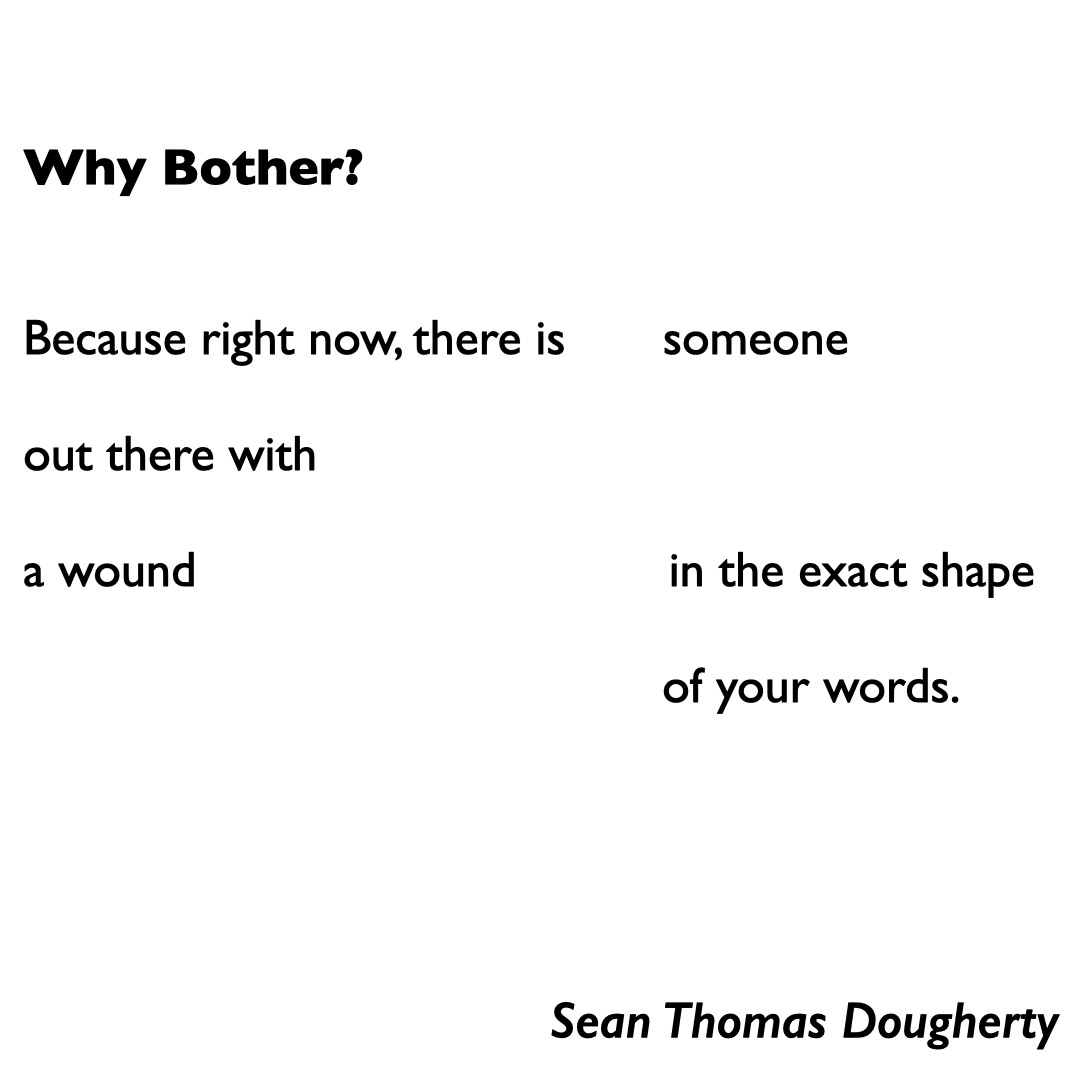There is a wave of hatred that is coursing through the angry veination of city streets in this country. Eyes tired of waiting for the second coming, curl into a question mark. So much fear, so much brute bigotry. The vertebra of the state have clicked into place, and the the fingers of the monster, orange with rage, and fear, grip the air like a javelin. A Moloch blunders through the maze of concrete, drunk with fire and the sordid faces of industry.
A god is cut out in the exact shape of its belief.
Nothing else.
I have been thinking of this poem for some time now. This question is not a whimsical one. It goes to the very heart of the discontent of the age.
Why Bother?
The anchor has been pulled. We float untethered in the air, verdant with possibility. But it is the impulse to quell, that surpasses the drive to create.
The essential characteristic of violence is that it is not creative. In this, it is an adjective, not a verb. It describes the character of the event, not the action, itself. There might be creativity in its method, but in essence, it is mechanical. It is empty without ideology. It needs a vehicle. The knife is sharpened on a kind of utopia, a fragile constellation of boundaries, that extend beyond the physical.
This impulse is a deeply narcissistic one. It resists the presence of anything other than itself. Any other construction, say, for example the choice of non vegetarian cuisine made outside the the straitjacket of the ritualistic codes of its dogma, is unacceptable (The modern avatar of the celebration of Ramnavami stresses on vegetarianism). The precarity of the Narcissist’s rage is instrumental in curtailing the agency of any identity other than its own. In fact, in its solipsistic passion for homogeneity, there is no distinction between itself and the world. This is a childish egotism, not dissimilar from the toddler’s inability to differentiate between its body and the space around it.
Dougherty’s verse in its generous smattering of lacunae, embodies the opposite impulse. It talks, in a halting tremor, of the power of empathy. It refracts the essence of poetry, to speak in many tongues at once, and also, to speak to multiple traumas. The poet aspires to this - that from any angle the poem can hold the viewer in its gaze, like those renaissance paintings of figures whose eyes follow you around the room.
More often than not, an experience that is esoteric and removed, becomes intimate by the torrent of the speaker’s feeling, or sometimes, the lack of it. More often than not, the reader nods in a solemn fellowship of unresolved pain. It is not that the act of reading is akin to healing, and I do not see this as therapy either. It is simply a manifesto to continue creating, even in the heart of darkness, when the world closes in on you, starving the environment of imagination.
Words disdained in solitude glow and sparkle, simply, by dint of their existence. They are valid in their framing of experience. The poem is born twice, once in its solitude, and the second time, as a fluttering, across hearts. A poem can be like one piece of a jigsaw puzzle. When this piece meets its own image, an experience without language, it latches on to the body, like a virus courting its host. Ah, the spread!
This is the power of poetry.
Note: From The Second O of Sorrow
Dher Saara Pyar :)
If the poetry, and the commentary, resonate with you, do consider ‘buying me a coffee’.
(Matlab, if you can’t, that’s also fine, obviously. This will always be a free newsletter)
—
Note: Those, not in India, who’d like to support the work I do at Poetly, do write to me - poetly@pm.me. (Apologies, I will figure out international payments soon)
If you wanna share this post with a loved one…
Thanks for reading Poetly! Do subscribe if you are not reading this in your inbox. Cheers!



